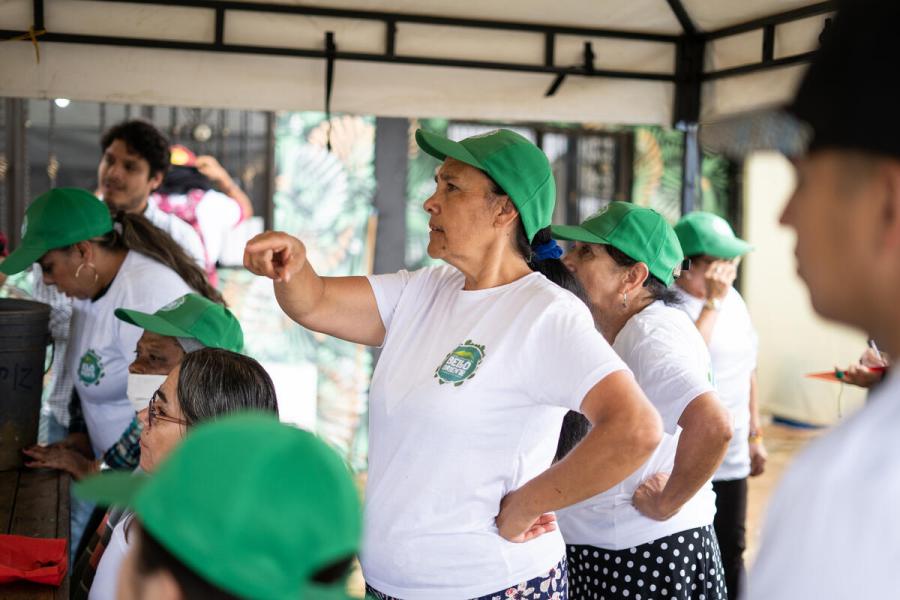2021 Year-end population figures
-
Refugees: 116,000
-
Asylum seekers: 81,000
-
IDPs: 6.77 million
-
Other populations of concern: 504,000
2021 Situation overview
Despite the efforts of the Government of Colombia to address armed violence, the national registry of victims recorded more than 130,000 newly displaced people in Colombia in 2021, and an additional 21,000 people were affected by confinements by illegal armed groups. Ethnic minorities were disproportionately affected, and Afro-Colombian and indigenous communities together accounted for 41% of those displaced and 99% of those confined. New displacement, confinement, violence and control by illegal armed groups, together with the pandemic, posed further challenges to advancing solutions for IDPs and improving humanitarian access. With the 10-year extension of Law 1448: Victims and Land Restitution, the Victims Unit continued to register and provide emergency response to those newly affected by displacement, while also working towards longer-term solutions. UNHCR supported the legalization of 22 urban informal settlements, benefiting more than 55,000 people since 2014.
UNHCR and its partners complemented Colombia’s institutional response to conflict-affected populations by strengthening the Government´s capacity at the national and local levels to prevent displacement, provide protection and support durable solutions. UNHCR supported the State’s presence in the areas most affected by the conflict through key institutions, strengthening firstly the institutional capacity of the Ministry of Interior, with emphasis on the implementation of protection plans and monitoring collective protection measures; secondly, the presence of the Office of the Attorney General of the Nation, allowing permanent monitoring of the implementation of the Victims policy and the Peace Agreement; thirdly, the National Protection Unit in implementing collective protection mechanisms and prioritizing cases for special follow-up; and lastly, the Ombudsperson's Office, particularly within the Houses of Rights strategy, which assisted 22,000 people.
UNHCR ensured the centrality of protection in inter-agency coordination platforms, ongoing protection monitoring, advocacy and outreach activities targeting vulnerable communities in areas particularly affected by conflict. The Victims Unit, the National Statistical Office and UNHCR began developing criteria and metrics – linked to the recommendations of the Expert Group on Refugee and IDP Statistics established by the Bureau of the United Nations Statistical Commission – to improve data on vulnerability levels among IDPs and on possible linkages with durable solutions.
At the end of 2021, the total number of people of concern in Ecuador was 565,000 people, of which 54,000 were Colombian refugees. UNHCR strengthened child protection case management and the identification of needs both by UNHCR and its partners. One of the most important challenges was to strengthen the capacity for conducting best interests assessments, with 110 children reached in 2021.
According to official Government data, the Bolivarian Republic of Venezuela hosted 9,300 recognized refugees and 520 asylum seekers as of 31 December 2021, mostly from Colombia. UNHCR strengthened its institutional relations with the National Commission for Refugees (CONARE) and the Office of the Ombudsperson by signing of a Tripartite Agreement. UNHCR supported CONARE to enhance protection delivery at the community level and helped to organize 15 registration and documentation outreach brigades in remote areas, which registered and documented 310 asylum seekers.
